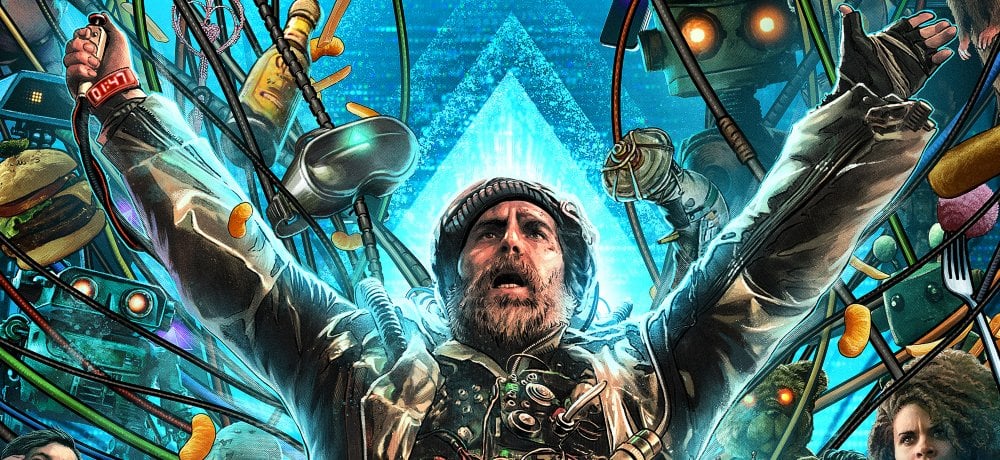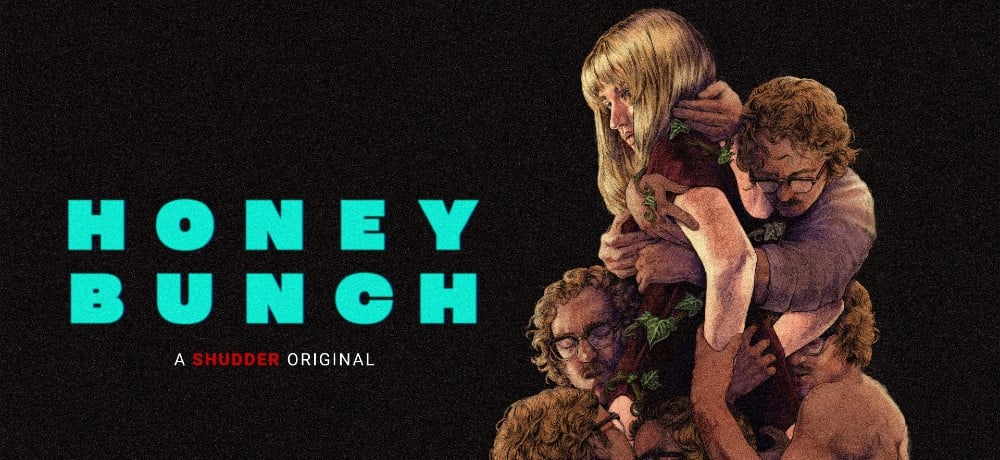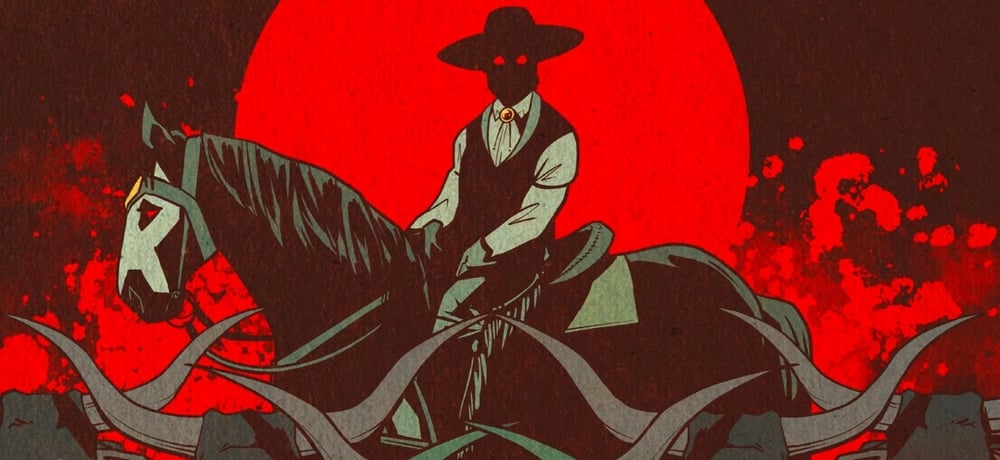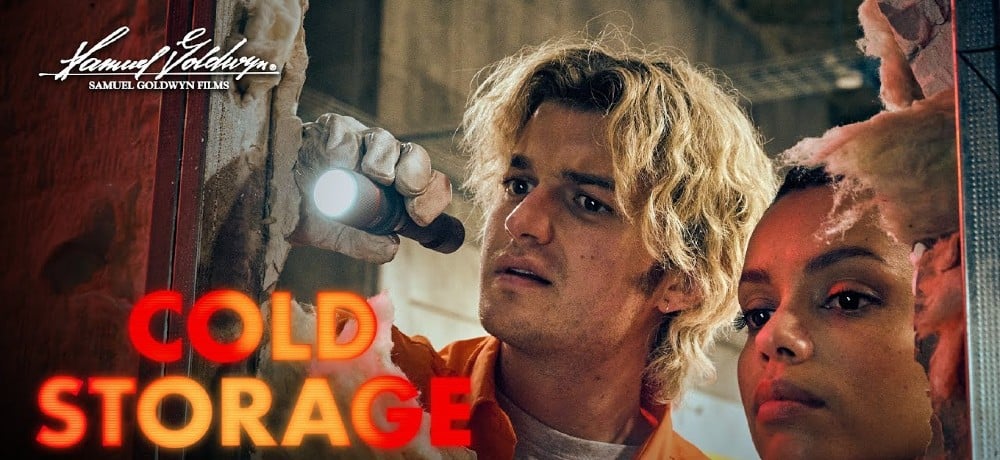





Before I began writing professionally about horror, I will be the first to admit I was a total stick in the mud. It wasn’t 100% my fault, but I was one of those people who had to have everything planned perfectly, and was always happy to bend over backwards to make sure I was living up to society’s expectations of who I should be, particularly close family members. I was living in this neat little box of a life, and honestly, it was destroying me from the inside, each and every single day.
Then, along came Hot Fuzz, and I realized that life doesn’t have to be so perfect, and that it’s okay to embrace who you are, even if it is a bit unconventional, because regardless of what anyone else thinks, just love what you love and never let anyone tell differently. I was finally ready to be a little less Nicholas Angel and learned to love the Danny Butterman living deep inside of me. And I owe that all to Edgar Wright and Hot Fuzz.
But before I can even take a look back at what Hot Fuzz has come to mean to me over the last ten years since it was first released, I have to start all the way back in 1991, in particular, the third week of July when I first saw Point Break. That summer was a weird one for my family because my mom’s sister Florence was dealing with the horrendous nature of colon cancer, and while she had surgery and had undergone a few rounds of treatments that seemed to help, none of us knew if she was going to truly beat it. And, in fact, my Aunt Florence ended up losing her battle with cancer in November 1991, which makes the memories of that summer all the more special to me, especially Kathryn Bigelow’s Point Break, which my aunt took myself and a few of my cousins to see one swampy summer afternoon.
The reality was that going into Point Break, myself and my cousin Missy (who was the closest in age to me out of my cousins) were pretty much just wanting to see it because of Keanu Reeves and Patrick Swayze. And while the film definitely didn’t disappoint in that regard at all, the one thing I will always remember about seeing Point Break for the first time ever was watching my Aunt Florence crying at the end of it, and how that surprised me.
Her emotional outburst definitely wasn’t something that I really understood at the time, but as an adult, and the more I’ve thought about that moment again and again in my head, I realized that here was a woman who was grappling with her own mortality out of the blue (she had only been diagnosed with cancer in January and it ended up being much worse than doctors had initially thought), and beyond this amazing action movie, Point Break’s story was about being willing to 100% give yourself over to something you love and believe in. As Bodhi says at one point, “It’s not tragic to die doing what you love.” I can’t even begin to imagine what that message feels like when your own future is so uncertain.
And so maybe that ending of Bodhi riding out into that inevitable wave of death hit her a lot differently than it hit me as a teenager, but either way, I knew I had just witnessed something profoundly important to me in Point Break, even if I didn’t know what that was just yet.
Fast forward to 2007. By this point, I was already married and had settled into "the life": an office-based career that offered up a steady paycheck but not much else, two cars, a home in the suburbs, a time share even, but ultimately an existence that left me feeling more lost than anything else. I was living in a pretender’s world, happy to just move along in a life that everyone else thought I should be living, but what it all meant is that I wasn’t really being true to who I was. And, right at the beginning of all these radical changes I was about to make in my life that would lead me to where I’m at now, was Hot Fuzz.
If you are a fan of Wright’s “Cornetto Trilogy,” then you don’t really need me to sell you on the merits of Hot Fuzz. A brilliantly conceived celebration of buddy cop cinema that soars on the infectious comedic chemistry shared between Simon Pegg and Nick Frost, Hot Fuzz effectively taps into the action movie tropes so many of us love, while at the same time delivering an endearing story of two police officers—Nicholas and Danny—that couldn’t be any more different than each other, who find balance in their respective worlds and form an unlikely friendship that helps conquer an evil conspiracy that’s been running rampant in the sleepy village of Sanford in Gloucestershire, England.
I pretty much knew that I was going to love Hot Fuzz going into it, especially considering the talent involved and how much I had fallen head over heels for Shaun of the Dead, the previous collaboration between Wright, Pegg, and Frost. But nothing prepared me for that first time I saw it, and watched as they lovingly paid tribute to what I consider one of the greatest action movies of the 1990s, Point Break. I can’t even begin to tell you what that felt like, but I know that every reference and hat tip to Bigelow’s landmark actioner was akin to opening a new present again and again on Christmas morning (and I think I may have been the only one cheering loudly in my theater at the moment when Danny shoots his gun in the air, but I could not have cared less, because it was PERFECT). It was exhilarating, endlessly fun, and a huge eye-opener, too, because it was in those moments that realized, I had been living my life as Nicholas Angel, and who I really was deep down all along was Danny Butterman.
I know that maybe it sounds weird, but I feel like cinema can offer all of us something in return—entertainment, escapism, a chance to experience something we’d never have in reality or to face our fears—and it can even reveal certain truths about ourselves and others around us. That’s why we all love the movies so much. And as I’ve gotten older (and maybe just a little bit wiser), I’ve come to realize that most of my favorite movies have been reflections of something about my own personal life, and at the point of Hot Fuzz’s release, I was on the cusp of realizing that the world I had worked so hard to establish for myself was really just a bunch of falsities, and I needed to come to terms with just who I really was if I was ever going to be happy.
The reality was that for most of my adult life up until that point, I was very much like Pegg’s character in Hot Fuzz. On a professional level, I was one of those over-achievers who would work insane hours and took my work way too seriously. In my personal life, structure and predictability were the name of the game, and I was okay with tucking certain aspects of my own personality away because people in my life had deemed that my own geeky tendencies weren’t how adults should act. Most of my posters and toys went away (relegated to the confines of my office), and I lived like the grown-up I was supposed to be, because maybe it was easier than endlessly being made the butt of many jokes because of the things that I loved.
But after seeing Hot Fuzz, and particularly the way Danny’s enthusiasm was portrayed both by Wright (as the co-writer) and Frost (as the performer) with such a pure sense of earnestness and genuine good-heartedness, I realized being passionate about what you love (and in Danny’s case, it happened to be films like Point Break and Bad Boys II) doesn’t make you any less of an “adult.” In fact, it makes you a better adult, because once you give up your attachment to those things you have loved that have helped define you along the way, you’re essentially turning your back on who you really are. Similar to what Ally Sheedy’s character says in The Breakfast Club, when she expresses her concerns about the inevitabilities of adulthood, saying, “When you grow up, your heart dies.”
I just didn’t want that for my life, and I honestly felt like with every passing day, I was getting further away from who I really was, and for lack of better terminology, I just wanted to let my freak flag fly however I saw fit. Which brings me back to Point Break, a movie that completely entranced me as a teenager for a myriad of reasons, but would come to mean something more to me as an adult as I realized that I needed something much more out of life.
You know when you listen to a certain song or maybe pop in a certain movie to light a fire under your ass, or keep you on track towards your goals? That’s what Point Break evolved into for me in 2007. There’s a quote in the 1991 film that quickly became my mantra: “If you want the ultimate, you have to be willing to pay the ultimate price,” and I clung to those words tightly as I faced some of the biggest changes of my life over the next few years. I wanted the life I finally have now so badly that I was willing to walk away from nearly every facet of my existence, and to be perfectly honest, I never thought I’d get it. There wasn’t a day that went by for those first two years where I wasn’t filled with nagging self-doubt and dread because for almost 30 years, I thought I knew what my life should be, and then, I had no idea what was next.
The greatest thing about film as a medium is that 100 people can see the same movie and have 100 different responses, and they’re all technically right. With Hot Fuzz, some will love it for the way it plays around with different action movie conventions, some will enjoy its darkly macabre sense of humor, some will appreciate it purely for its balls-out third act that goes in a very Michael Bay-esque direction as all hell breaks loose throughout the quiet village of Sanford, but for me, Hot Fuzz was the movie I absolutely needed at that point in my life. And with its tenth anniversary of its US release today, I just wanted to take this opportunity to say how grateful I am to Wright and his wonderfully talented ensemble for creating one of my very favorite films of all time that helped me discover “The Greater Good” in my own life.